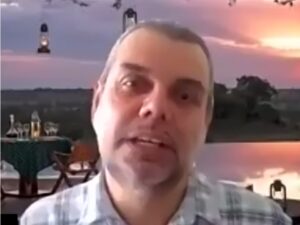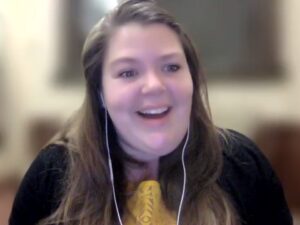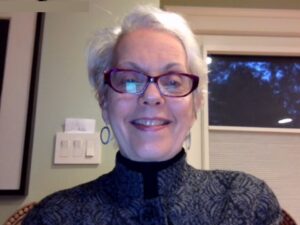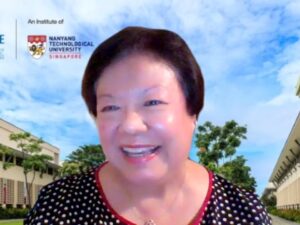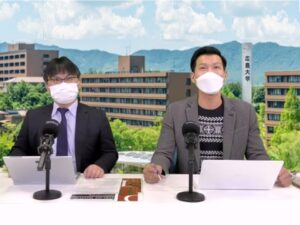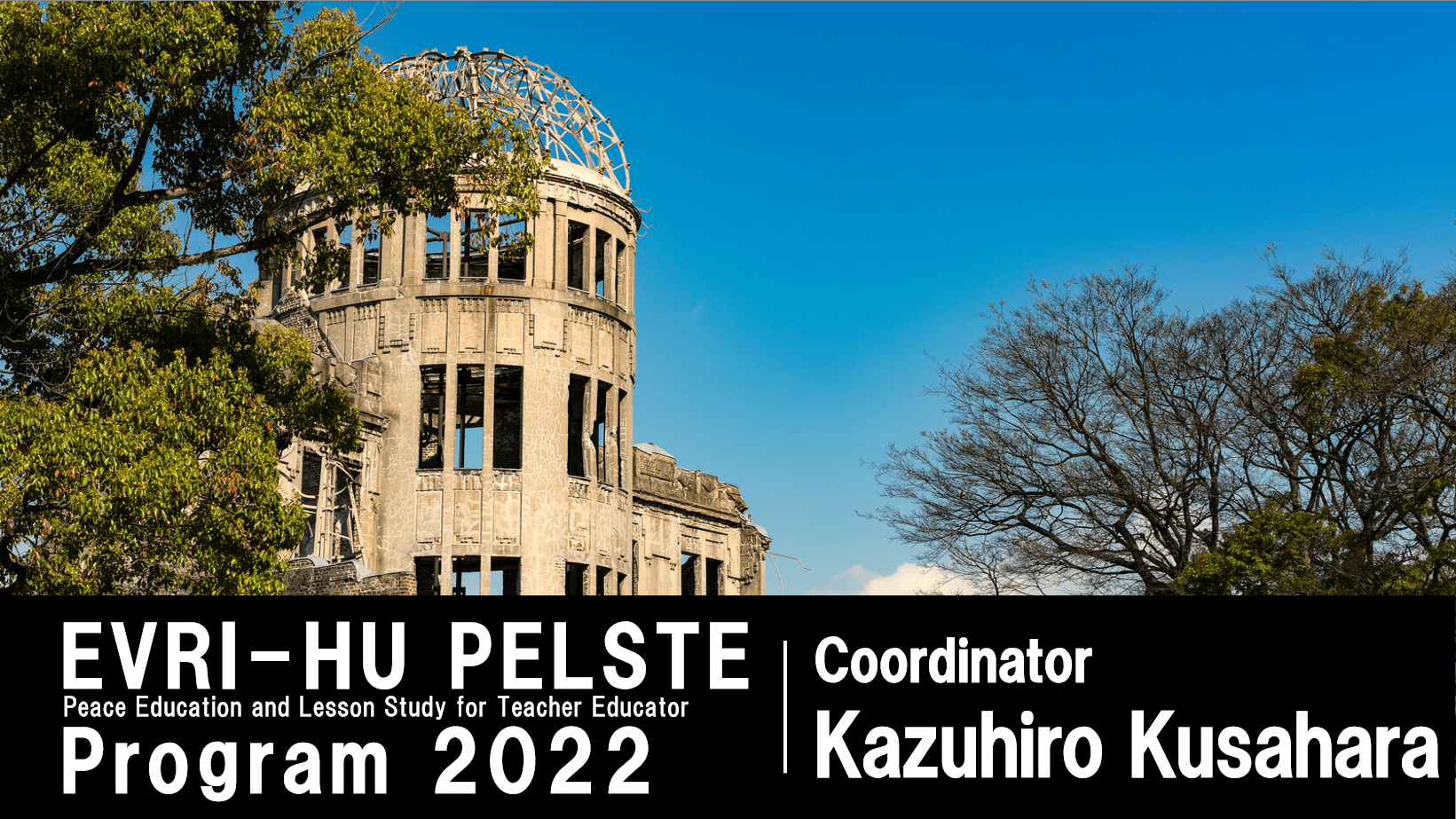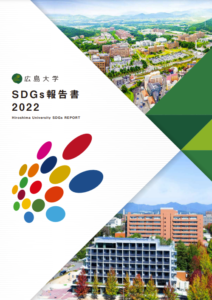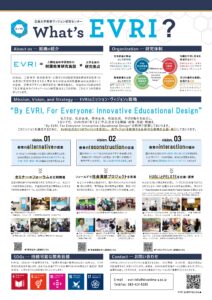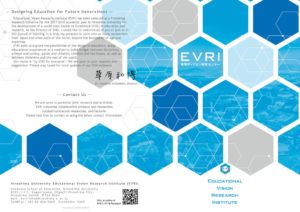【2022.02.05】EVRI Forum No.31 PELSTE 2022 Symposium
JP/EN
Ⅰ.PELSTE 2022 SYMPOSIUM

On February 5, 2022, the Educational Vision Research Institute (EVRI), collaborating with the Internal Committee of INEI at Hiroshima University, held a symposium for Peace Education and Lesson Study for Teacher Educator (PELSTE). The purpose of PELSTE 2022 was to provide a platform for research exchange, so that the Faculty of Education, Hiroshima University can become an international (East Asian) center for “Peace Education” and “Lesson Study” in preparation for the INEI Annual Meeting to be held in Hiroshima after 2024. The symposium of PELSTE 2022, which focused on “Lesson Study,” was held with three participants and 92 audience members to discuss the significance and challenges of Lesson Study.
At first, Dr. Kazuhiro Kusahara (Hiroshima University), the chief of EVRI, and Dr. Jongsung Kim (Hiroshima University), the facilitator of the PELSTE 2022, explained the aim of the event. Understanding Lesson Study as a localized version of Japanese Lesson Study (Jyugyou Kennkyuu) based on the needs and context of individual settings, the two are not the same. Dr. Kim stressed the importance of listening to the three presentations from the perspective of what Jyugyou Kenkyuu and Lesson Study learn from each other.
The first presenter, Dr. Agnaldo Arroio (University of São Paulo), reported two lesson study cases: one project for science pre-service teachers and the other for elementary school teachers about teaching with ICT. Dr, Arroio mentioned that he adopted lesson study into teaching courses and professional development programs that he was in charge of. He reported that the most important learning of the participants was to understand the value of observing the lesson. He explained that, behind that learning, there were communities to support each other. In the case of Brazil, lesson study was a method to create a space for talking about lessons comfortably.
The second presenter, Ms. Indira Subramanian (National Institute of Education, Singapore), reported the case of her in-service teacher lesson study group in India. Ms. Subramanian, who wanted to share her learning about lesson study in PELSTE 2021 with educators in India, created a lesson study group with five in-service teachers in India. Her lesson study group run online designed a research lesson, observed the lesson via YouTube, and improved it together. Based on the data that she collected before, middle, and after the lesson study, she discovered that lesson study could develop an attitude to understand lessons flexibly and can deepen not only pedagogical knowledge but also pedagogical content knowledge.
The third presenter, Ms. Kaycee Rogers (University of Wisconsin-Madison), reported a professional development program that she adopted lesson study. Understanding that teachers in rural areas have rare opportunities to talk about lessons with colleagues professionally, she argued that online lesson study could solve the mentioned problem. Because it is an ongoing project, the result was not reported; however, she shared the details of the project, such as how the project tried to deliver the core feature of lesson study to the participants.
- Dr. Agnaldo Arroio (University of São Paulo)
- Ms. Indira Subramanian (National Institute of Education, Singapore)
- Ms. Kaycee Rogers (University of Wisconsin-Madison)
After the three presentations, the first discussant, Dr. Catherine Lewis (Mills University), commented on the value of lesson study that she discovered from the cases of America, Brazil, and India. One is to transform teacher education programs from content-focused to lesson-focused. The other is to create professional learning communities that educators as professionals of a lesson can support each other. Also, considering all the three casesd are implemented in online settings, she said it is important to understand the characteristics of online lesson study. Finally, Dr. Lewis mentioned the importance of institutional backup to maximize lesson study’s impact in individual settings.
The second discussant, Dr. Christine Lee (National Institute of Education, Singapore), compared and commented on the three presentations from the following perspectives: “What is the context of the cases of lesson study?” “Why did the teacher educators decide to adopt lesson study?” “What is the protocol of the lesson study?” Based on her analysis, she asked the following two main questions to the presenters: (a) “What core features of Lesson Study have you retained in your adaptation of Lesson Study in your contexts and why?” (b) “What changes would you make in your next iteration of Lesson Study?”
- Dr. Catherine Lewis (Mills University)
- Dr. Christine Lee (National Institute of Education, Singapore)
During Q&A time, audiences asked the following questions: “How did you incorporate the practice of lesson study in the teaching and learning routine (teaching and learning)?” “What type of virtual platforms were used to conduct Lesson Study?” “How can these challenges (which are discussed in PELSTE 2022) be addressed in order to have successful and effective Lesson Study?” It depends on each case; however, presenters agreed that it is difficult to adept lesson study in a setting where there is no lesson study culture. It was okay to introduce lesson study in the regular course and professional development. But presenters said that, in many cases, they needed to set a specific time with the participants for lesson study such as after school, weekend, or break. Three participants mentioned that they utilized Google Classroom, Google Meeting, and YouTube for online lesson study. Because of the shortage of time, presenters could not answer the last question. All the participants decided to think about their own lesson study project’s challenges and their solutions and share them in the next PELSTE.
Finally, with the closing comment of Dr. Norio Matsumi, Dean of School of Education at Hiroshima University, PELSTE 2022 finished.
- Dr. Norio Matsumi
- Dr. Kazuhiro Kusahara and Dr. Jongsung Kim (Hiroshima University)
Ⅱ.Ask for your opinions
Thank you for participating, we are kindly ask you to answer few questions regarding this seminar.
please click here so that you will find the page for questionnaire.
*EVRI Forum No.31 Flyer
 |
We appreciate if your could give us your comments about the event. Click the banner below


